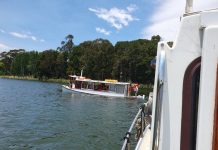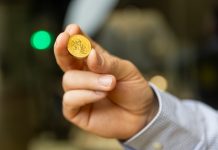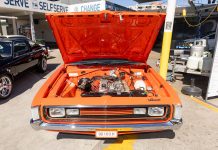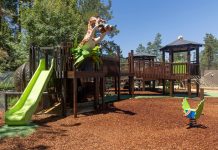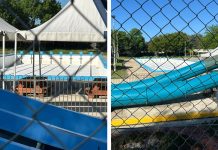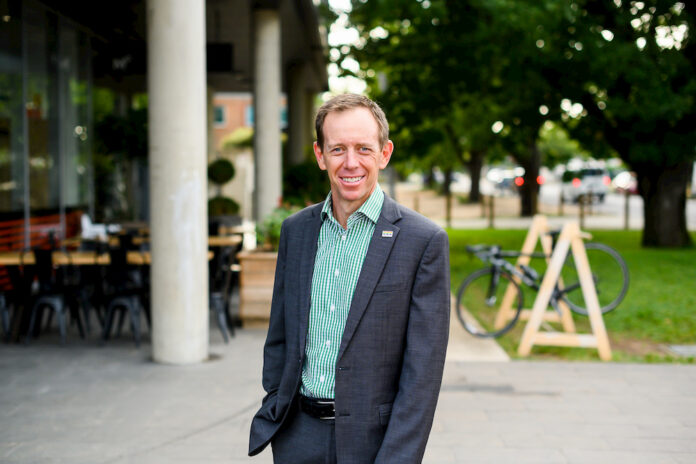
ACT Greens leader Shane Rattenbury believes the Greens could become the ACT’s major political party in a few years.
Certainly, the recent elections showed a decisive swing towards the progressive environmental organisation, whose website boasts they are Canberra’s fastest-growing political party.
Last summer’s bushfires were an “eye-opener” for many Canberrans on the issue of climate change, Mr Rattenbury believes. Canberrans endured bushfire smoke and extreme heat; the air quality at one point was the most polluted in the world, while the capital city baked in 43- and 44-degree heat, smashing temperature records more than 80 years old.
As temperatures soared, so did the number of Greens party members in the ACT. “We’ve had a real spike in our membership,” Mr Rattenbury said.
October’s elections saw the number of Green MLAs triple from two to six. Two of those new members have been given ministerial portfolios; the Greens have formed a coalition government with ACT Labor; and the party now holds the balance of power for the fourth time – a world first. At the same time, the ACT became the first jurisdiction outside Europe with a population larger than 100,000 to achieve 100% renewable energy. And membership has continued to increase after the election.
“I think people see us as an option they can really get behind; we can have a real effect on Canberra politics,” Mr Rattenbury said.
The new MLAs
Making their inaugural speeches last year, the five new Green MLAs spoke passionately about their desire to save the world, to create a better future, to act on the climate emergency. It has been a steep learning curve, Mr Rattenbury said, but his new team are enthusiastic.
“They’re going great guns. They can’t wait to get started. They feel like they’re really into the job now, and both wanting to represent their local areas, and focus on some of the citywide issues that we took to the election.”
None of them have been party political staffers or been in the party machinery, Mr Rattenbury said; instead, they come from NGOs, the community sector, and volunteering, carrying on a Greens tradition.
“It gives them a real sense of service to the community, but also a reality check of what people’s day-to-day lives are like,” Mr Rattenbury said.
Rebecca Vassarotti – the new Minister for the Environment, Heritage, Homelessness and Housing Services, Sustainable Building and Construction – has worked with the social services, homelessness and community housing, and health and drugs organisations.
Emma Davidson – Minister for Disability, Justice Health, Mental Health, and Assistant Minister for Families and Community Services – has worked on housing affordability, economic inequality, women’s health, violence against women, public education and healthcare.
“Our MLAs have got those genuine lived experiences, and I think it gives them a real depth when they come into this kind of role,” Mr Rattenbury said.
Both women have taken well to the responsibility of a ministerial portfolio in their first term, Mr Rattenbury believes.
“If you bring the right values and the right decision-making thinking, there’s no reason you can’t become a minister straight away,” he said. “They’ve both got significant experience in the community sector, in running organisations, in dealing with a range of community stakeholders. They’re all the skills you need to be a minister.”
Having three Greens ministers provides an opportunity day by day and week by week to be involved in the decision making that affects the community, and to bring Greens values and ideas to the cabinet table, according to Mr Rattenbury.
“We make ministerial decisions. We can put that Green filter on and do as best as we can for the community and take on that responsibility.”
So do the Greens members who sit on the crossbench, through parliamentary sittings, committees, or getting out in their electorates and bringing their constituents’ issues back to the Assembly.
A two-party government with Labor works well, Mr Rattenbury believes. “There’s a creative tension in it where different ideas are brought to the table; it requires you to negotiate and to come up with good solutions that suit a range of people.”
Mr Rattenbury said he was “quite pleased” with Labor and the Greens’ Parliamentary and Governing Agreement to work together.
“We think we’ve managed to build a strong shared agenda with the Labor party that will deliver both some of their election commitments and some of ours. That said, not all of the things we took to the election are in the parliamentary agreement; there will be things we will continue to work on, make the case for. But we want to knuckle down and get on with delivering those things.”
Although the Greens did not necessarily aspire to a majority government, Mr Rattenbury would like to see a Greens chief minister one day – someone like Johnathan Davis, “an eager young member with lots of energy”.
“A few years down the track, with some real experience, there’s no reason why the Greens couldn’t be the major party in a government in this town.”
A “bold and progressive” agenda
Mr Rattenbury described the Greens’ election platform as “bold and progressive”, focusing on climate change and social inequality.
Climate action is paramount: “Making sure we reduce the ACT’s emissions; preparing our city to be ready for climate change,” Mr Rattenbury said.
There are big challenges ahead, such as transitioning from natural gas to renewables, while he estimates it will take a decade to reduce the 60% greenhouse gas emissions from transport. The government will offer financial incentives for electric cars and convert the bus fleet to electric vehicles, while the light rail runs on renewable electricity. This will take time, Mr Rattenbury acknowledges. “But we have a clear target, and I’m confident we cando it.”
Twelve years ago, Mr Rattenbury said, when he was first elected, a Greens key demand in negotiations with Labor was to reduce greenhouse gas emissions by 40% by 2020. They achieved this target last year.
“We demonstrated what’s possible. Canberra is considered one of the leading jurisdictions on the planet for safe environment action, and we Greens have been able to bring that about, in partnership with the Labor party.”
The Greens also promised to Build a Better Normal for Canberra, “redressing the inequalities and injustices of our current systems”, rather than returning to business as usual. Many Canberrans, Mr Rattenbury said, believe things need to change. “There is a yearning in the community to try to fix some of the problems that have been there for a while, but which perhaps the last 12 months have really shone a spotlight on.”
Inequality, too, has grown in recent years. Although many Canberrans have adequate incomes and great lives, others struggle. “In a city where many people do so well, there’s a particular responsibility on us to make sure we look out for those who are not doing so well,” Mr Rattenbury said.
The Greens are committed to investing in more public and community housing: decent, affordable, and secure homes. “It takes time to get that built, but we’ve got to get started now so we can deliver it over the next few years… It is, I think, a bigger responsibility in this city than perhaps it might be in other places.”
Job security and income support are also on the Greens agenda. Full-time work is becoming increasingly casualized; 21.5% of the ACT’s workforce were casual workers in August 2019, according to the ABS.
“We saw that for people who didn’t have a permanent job, the COVID experience is much harder,” Mr Rattenbury said.
JobKeeper was a “tremendous” short-term response, he believes, but the long-term response needs to focus on job security. Greens Ministers Davidson and Vassarotti last year criticized the federal government decision to reduce the Coronavirus Supplement payment from $250 to $150 a fortnight from 1 January, worrying this would put vulnerable people at further risk of homelessness. Unemployment benefits are too low, Mr Rattenbury believes.
“People are living below the poverty line. We think [benefits] should be maintained at a higher level. To see it wound back, where people will go those below poverty line levels of income, we don’t think is just or sustainable.”
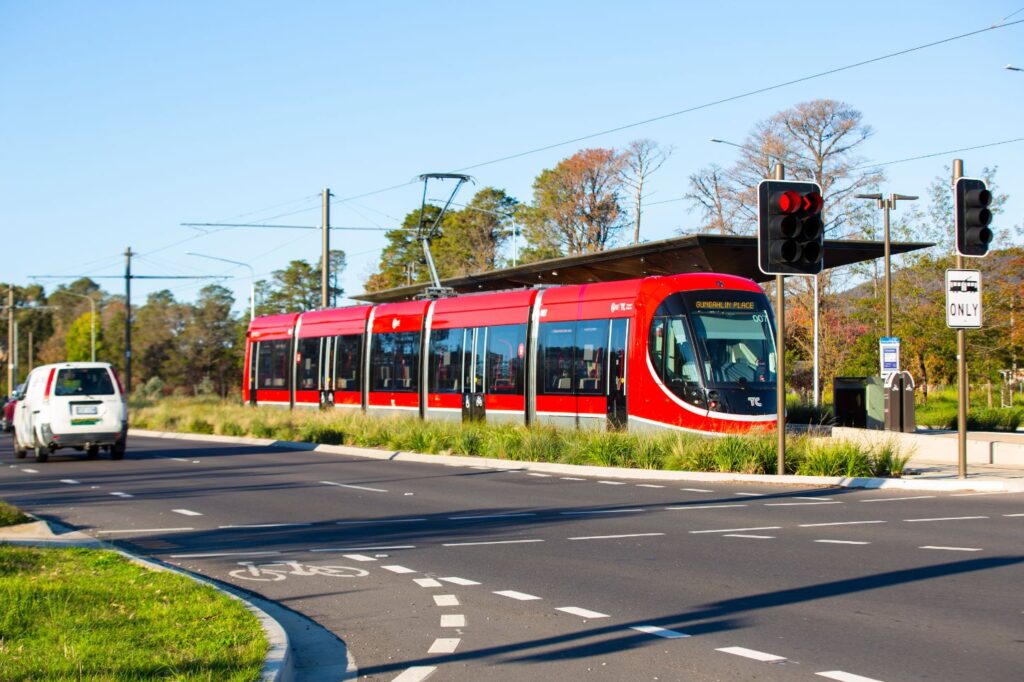
A message to the community
Mr Rattenbury hopes 2021 will be a better year than last. “Hang in there,” he urged the public. “Some people had a really tough year. 2021 isn’t going to instantly improve, but I think we can all see some rays of sunshine coming in the future.
“For those who are struggling, don’t do it alone. Reach out and seek help, whether it’s with mental health, struggling economically, or feeling a bit lonely. There are people out there who want to help, and who will support you. So, don’t be alone in coming back from what has been a really tough time for a lot of people.”
Mr Rattenbury encouraged the public to be optimistic.
“We can make a difference. Canberra is showing that a better future is possible. We need to do our job here, but I think in doing our job here, we can also inspire other parts of Australia, and other parts of the world, that we can create a better future,” he said.

